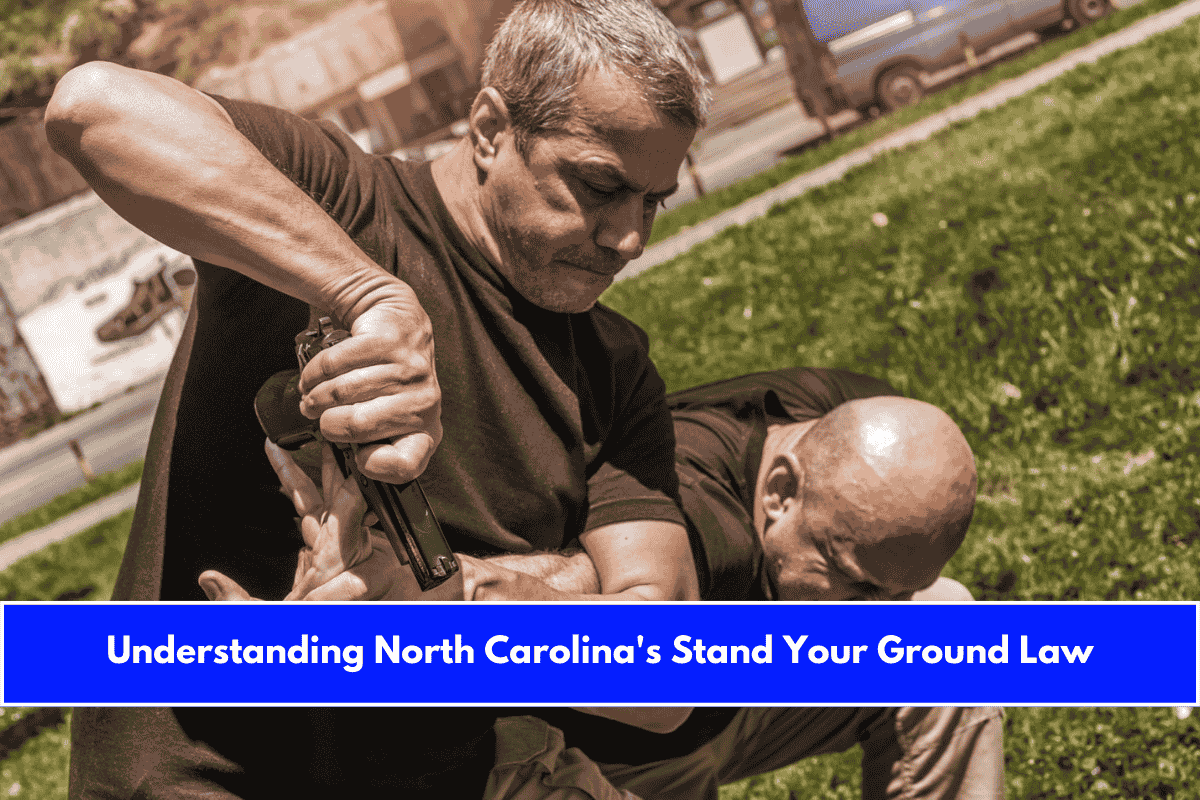North Carolina is a “stand your ground” state, meaning individuals have no legal duty to retreat before using force, including deadly force, in self-defense if they are lawfully present in a location.
This law applies both inside and outside the home, as long as the person reasonably believes such force is necessary to prevent imminent death, serious bodily harm, or a violent crime.
Key Provisions
No Duty to Retreat:
In North Carolina, you are not required to try to escape or retreat from a threatening situation before defending yourself or others with force, provided you are in a place where you have a legal right to be.
Reasonable Belief and Proportional Force:
The use of force-including deadly force-is only justified if you have a reasonable belief that it is necessary to prevent imminent death or great bodily harm to yourself or another person.
The level of force used must be proportional to the threat faced; excessive or unjustified force can still lead to criminal charges or civil liability.
Castle Doctrine:
North Carolina also recognizes the Castle Doctrine, which specifically allows individuals to use deadly force without retreating when facing an intruder in their home, vehicle, or workplace. In these situations, the law presumes the occupant has a reasonable fear of imminent harm.
Limitations and Exceptions
- Not a Blanket Justification: Stand your ground does not mean you can use deadly force in any situation. The threat must be immediate and significant-such as the risk of death or serious injury. For example, responding with deadly force to a non-lethal threat (like a punch) may not be considered reasonable.
- Unlawful Activity: The law does not protect individuals who are engaged in unlawful activity at the time of the incident.
- Special Exclusions: The law does not apply if force is used against law enforcement officers, bail bondsmen, or others who have a lawful right to be present, and who properly identify themselves.
- Retreating or Stopping Threat: If the aggressor retreats or ceases to be a threat, continued use of force may be unjustified.
Legal Protections
If the use of force is deemed reasonable under North Carolina’s stand your ground law, the individual is generally protected from both criminal prosecution and civil liability.
Recent and Proposed Changes
There have been discussions in the North Carolina legislature about amending or repealing parts of the stand your ground law, particularly after controversial cases involving claims of excessive force.
However, as of 2025, the law remains in effect, though it is subject to ongoing debate and possible future changes.
Summary Table
| Provision | North Carolina Law (2025) |
|---|---|
| Duty to Retreat | No, if lawfully present |
| Use of Deadly Force | Permitted if reasonable belief of imminent threat |
| Castle Doctrine | Applies to home, vehicle, workplace |
| Protection from Prosecution | Yes, if force is justified and reasonable |
| Exceptions | Not for unlawful activity, law enforcement, etc. |
North Carolina’s stand your ground law provides robust protections for individuals defending themselves or others from imminent threats, both inside and outside the home. However, the use of force must always be reasonable and justified by the circumstances.
Misuse or excessive force can still result in criminal charges or civil lawsuits. If you are involved in a self-defense incident, consulting with a knowledgeable attorney is strongly advised.
Sources:
- https://www.browninglonglaw.com/blog/stand-your-ground-law-in-north-carolina.cfm
- https://scharfflawfirm.com/north-carolina-self-defense-laws/
- https://www.fanneylaw.com/self-defense-laws-in-nc.html
- https://www.dickerson-law-firm.com/blog/2023/04/the-basics-of-north-carolinas-stand-your-ground-law/
- https://en.wikipedia.org/wiki/Stand-your-ground_law











Leave a Reply